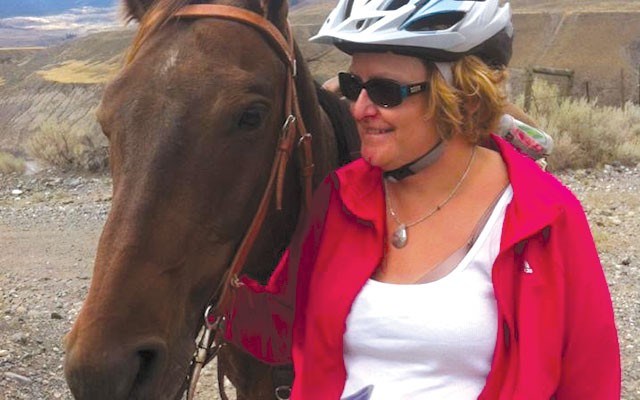Metastatic breast cancer awareness day — Oct. 13 — passed relatively unnoticed in Whistler this year, one day in a month of pink for breast cancer awareness.
For Patricia Stoop, however, it was another day of surviving her terminal disease; there's not much pink about that.
"Breast cancer awareness is one month," said Stoop. "Living with metastatic breast cancer, or even having a breast cancer diagnosis, is a lifetime."
Metastatic breast cancer, or Stage IV, is the most advanced form of breast cancer, where the disease has spread beyond the original site in the breast to other organs in the body.
Thirty per cent of women who have had early breast cancer will eventually develop metastatic breast cancer.
More than 70 per cent of 2,000 adults surveyed recently believed that breast cancer in the advanced stages is curable if diagnosed early.
And yet, the truth of the matter is: the median survival after a metastatic breast cancer diagnosis is three years.
There's a disconnect between the hopefulness of Pinktober, raising awareness for breast cancer, and the hard reality of the progression of this disease. There is still no cure.
Twenty-nine months since her diagnosis of metastatic HER-2 breast cancer, Stoop is living in a "no man's land" of sorts.
She's writing a new playbook for her life, one day at a time.
"There are no standards for how often to scan or how often to do anything for me," she said. "I've gone past the expectancy so there are no guidelines."
Every three weeks Stoop travels to Squamish General Hospital for chemotherapy, an infusion of Perjeta and Herceptin, drugs designed to keep the cancer at bay.
Every two weeks her blood is tested for signs of the cancer's return.
Every day she takes a cocktail of drugs to manage living with the disease — pain meds, anti-nausea meds, reflux meds. The list goes on.
Some days are good days; and then there are days when she can't get out of bed, usually about one or two of those a week.
There is no rhyme or reason to it.
There is also the depression and the crushing anxiety that often goes hand in hand with living with a terminal diagnosis.
The system, she said, doesn't really acknowledge that or provide services for it, one more thing to navigate and learn about in this journey.
In the meantime, Stoop is running a concussion group in Squamish (she worked as an occupational therapist before her diagnosis), and has applied to do her online masters in rehab sciences.
She shot a 30-second video for the Canadian Breast Cancer Network's "Living Legacy" campaign this year.
Stoop said her "living legacy" is her support network, from her treatment team to her family to the town of Whistler.
This, she said, is life. Her life.
"I keep going," she said.




